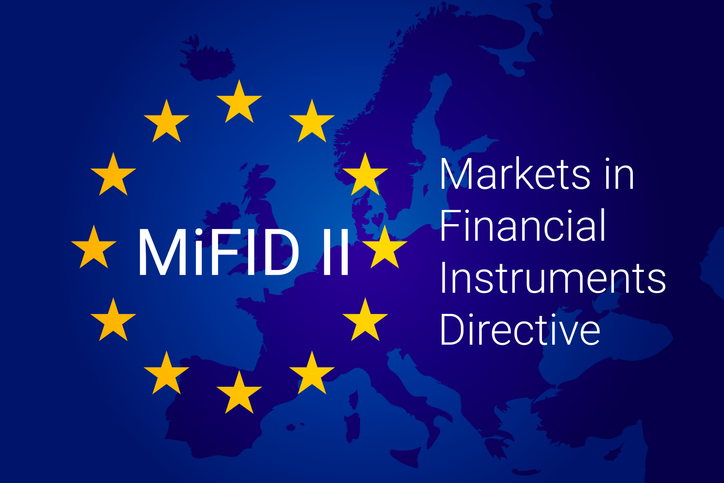What is MiFID II/MiFIR?
The Markets in Financial Instruments Directive II (MiFID II) is a European Union (EU) regulation that aims to improve the transparency, fairness, and efficiency of financial markets by enhancing investor protection and promoting competition among financial firms. Introduced in January 2018, it is intended as a revision to the original MiFID, which was implemented in 2007.
[The key requirements of MiFID II/MiFIR]
What drove the development of MiFD II?
The main driving forces behind the development of the Markets in Financial Instruments Directive II (MiFID II) were the financial crisis of 2007-2008 and the subsequent regulatory reforms that were implemented in response.
The financial crisis was caused by several factors, including the proliferation of complex and poorly-understood financial instruments, such as mortgage-backed securities and collateralized debt obligations, and the lack of transparency in financial markets. The crisis led to a widespread collapse of financial institutions, a sharp drop in asset values, and significant economic disruptions, including high unemployment and a recession.
In response to the crisis, the EU and other regulatory authorities around the world implemented a number of reforms both to improve the stability and resilience of financial markets and to protect investors. These reforms included the introduction of the original MiFID in 2007, which aimed to increase transparency in financial markets and to promote competition among financial firms.
However, the original MiFID did not go far enough in addressing the root causes of the crisis. As a result, it did not address adequately the rapid developments and innovations that had occurred in financial markets since MiFID’s introduction. As a result, the EU decided to revise and update the regulation, resulting in the introduction of MiFID II in January 2018.
MiFID II builds upon and expands the original MiFID by addressing inadequately covered areas, including the use of high-frequency trading algorithms, the transparency of costs and charges, and the protection of investors in complex financial instruments.

Where is MIFID II applicable?
MiFID II applies to a wide range of financial instruments, including equities, bonds, derivatives, and structured products, as well as the firms that trade, advise, and provide investment services in these instruments. It covers various types of financial firms, including banks, asset managers, brokerage firms, and exchanges, as well as alternative trading venues and intermediaries.
One of the main goals of MiFID II is to increase transparency in financial markets by requiring firms to disclose more information about their products, services, and fees. For example, firms must disclose the costs and charges associated with their products – as well as the research and other services they provide – in a clear and transparent manner. This enables investors to make more informed decisions and helps to prevent conflicts of interest.
MiFID II also aims to promote competition among financial firms by encouraging the use of multiple trading venues, such as exchanges and alternative trading platforms, and by imposing stricter rules on the use of high-frequency trading (HFT) algorithms. The regulation also imposes stricter rules on the use of ‘dark pools’, private exchanges that allow traders to buy and sell large volumes of securities without revealing their identity or the details of the transactions.
Another important aspect of MiFID II is the enhanced investor protection it provides. The regulation requires firms to provide more detailed information to investors about the risks and potential rewards of their products, as well as to assess the suitability of these products for their clients. It also imposes stricter rules on the use of financial instruments that are complex or difficult to understand, such as derivatives and structured products.
In addition, MiFID II requires firms to maintain detailed records of their activities and to report these to regulatory authorities. This enables authorities to monitor the market more effectively and to identify and prevent potential abuses or misconduct.

The importance of MiFID II
MiFID II is important for financiers for a number of reasons. First and foremost, it helps to create a level playing field for all financial firms, regardless of their size or type. By imposing similar rules and requirements on all firms, the regulation helps to ensure that all firms are subject to the same standards and are held to the same level of accountability.
Second, MiFID II helps to promote transparency and fairness in financial markets by requiring firms to disclose more information about their products, services, and fees. This helps to prevent conflicts of interest and helps investors make more informed decisions.
Third, MiFID II helps to promote competition among financial firms by encouraging the use of multiple trading venues and by imposing stricter rules on the use of HFT algorithms and dark pools. This helps to prevent market manipulation and ensures that all firms have equal access to market information.
Fourth, MiFID II provides enhanced investor protection by requiring firms to provide more detailed information to investors about the risks and potential rewards of their products and by imposing stricter rules on the use of complex or difficult-to-understand instruments. This helps to prevent investors from being misled or exploited and helps to protect their interests.
Overall, MiFID II is a comprehensive and far-reaching regulation that aims to improve the transparency, fairness, and efficiency of financial markets and to enhance investor protection. It is important for financiers because it helps to create a level playing field for all firms, promotes transparency and fairness, promotes competition, and provides enhanced investor protection.
If you would like to learn how Intuition can teach your workforce about this legislation, please click here.



